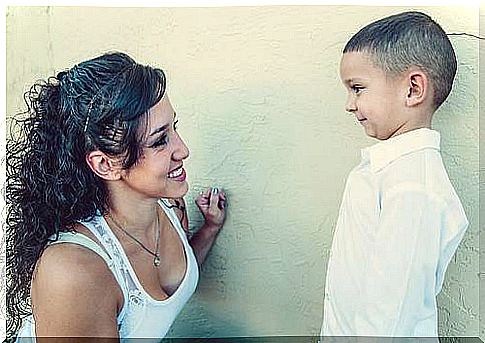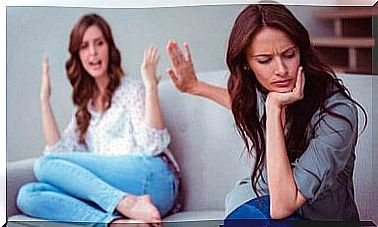Does The Style Of Education Influence The Child?

Most parents are unaware that there are different styles of education or that they belong to one of them. They act by doing the best they can, using their own experience and integrating their opinions and principles.
Whether they are aware of it or not, each parent has adopted, without realizing it, one of the different styles of education.
4 styles of education
Based on the developmental psychology of Diana Baumrind, educational styles depend on two fundamental aspects: 1) sensitivity and interest, 2) demand and firmness.
This American psychologist has developed one of the best-known theories about educational styles. She differentiated three categories (authoritarian, indulgent and permissive), to which would be added later the category of so-called “negligent” parents.
Each educational style is a mixture of these two fundamental aspects, and of course, the best style is one that has found a balance between these aspects.
: “It’s like that because I decided it, period.” (level of requirement and firmness = 100%). Parents here show great authority, to the detriment of tenderness, which is rare. In extreme cases, authority can become abusive.
: “Do as you want my darling” (level of sensitivity and interest = 100%). The level of attention ranges from moderate to very high, with a lack of control. No disciplinary rule has been established; all the wishes and whims of the child are granted.
: The child claims: “Where is mum?” (level of requirement, firmness, sensitivity and interest = 0%). These parents lack commitment to their child and authority is non-existent.
: “Now do you understand why it is important that you obey the rules?” (rigor and firmness = 50%, sensitivity and interest = 50%). These parents are generally very affectionate but know how to gain respect when needed. They promote social skills. They know how to bring rules with reason and respect the independence of their child.
What do studies show about this?
All studies agree that children whose parents are part of the “democratic” style – that is, parents who remain moderate, who communicate, who use logic to cooperate with the child, who lead by example – are the most successful, short and long term.
These children know how to adapt, cooperate, and are independent. Studies have also shown that they are less exposed to negative pressure and know how to surround themselves with the right people. They have good self-esteem and respect others.
What is certain is that, even if the democratic style is the most enviable and effective, it is also the hardest to put into practice. Indeed, it requires a lot of time, patience and energy on the part of the parents. It is perhaps for these reasons that some opt for another educational style.
Does it really matter which style we “choose”?
Parents seeking to avoid conflict are surely part of the permissive style. They do not establish rules of discipline, all is love. After all, no one likes to be seen as the “movie villain”, especially in the eyes of a child.
However, the observations are not always good. Indeed, studies have found that children raised in this way are more prone to later suffer from depression. In addition, they demonstrate a correlation between an overly permissive style and drug use, delinquency and promiscuity.
The ironic thing is that most of these children sometimes come to believe that their parents don’t like them …
What about the authoritarian style? Everyone has heard someone say: “My father was very strict and showed no love, but today I don’t suffer from it”.
According to Dene Garvin Klitzing, a professor at the University of Delaware, this reaction is due not only to the educational style, but also to the very personality of the child. If the child has a positive temperament and an open mind, he can thrive, despite the circumstances. However, he is much more likely to be successful in life with a good education.
Children with authoritarian parents learn at a young age not to talk to their parents about their concerns, and are therefore more influenced by their friends. Often they feel frustrated and even rebel against their parents’ values and beliefs.
In addition, a study carried out at Boston Medical Center found that children who had parents who were authoritarian and firm in their ideas were 5 times more likely to become obese than children who had parents who were more flexible and democratic.
Obviously we all agree that these three styles of education are better than an absent parent.
Indeed, studies have shown that children who have neglected parents will have more developmental difficulties, and also in adulthood. In addition, these children poorly manage their emotions and find it difficult to create and maintain relationships.







